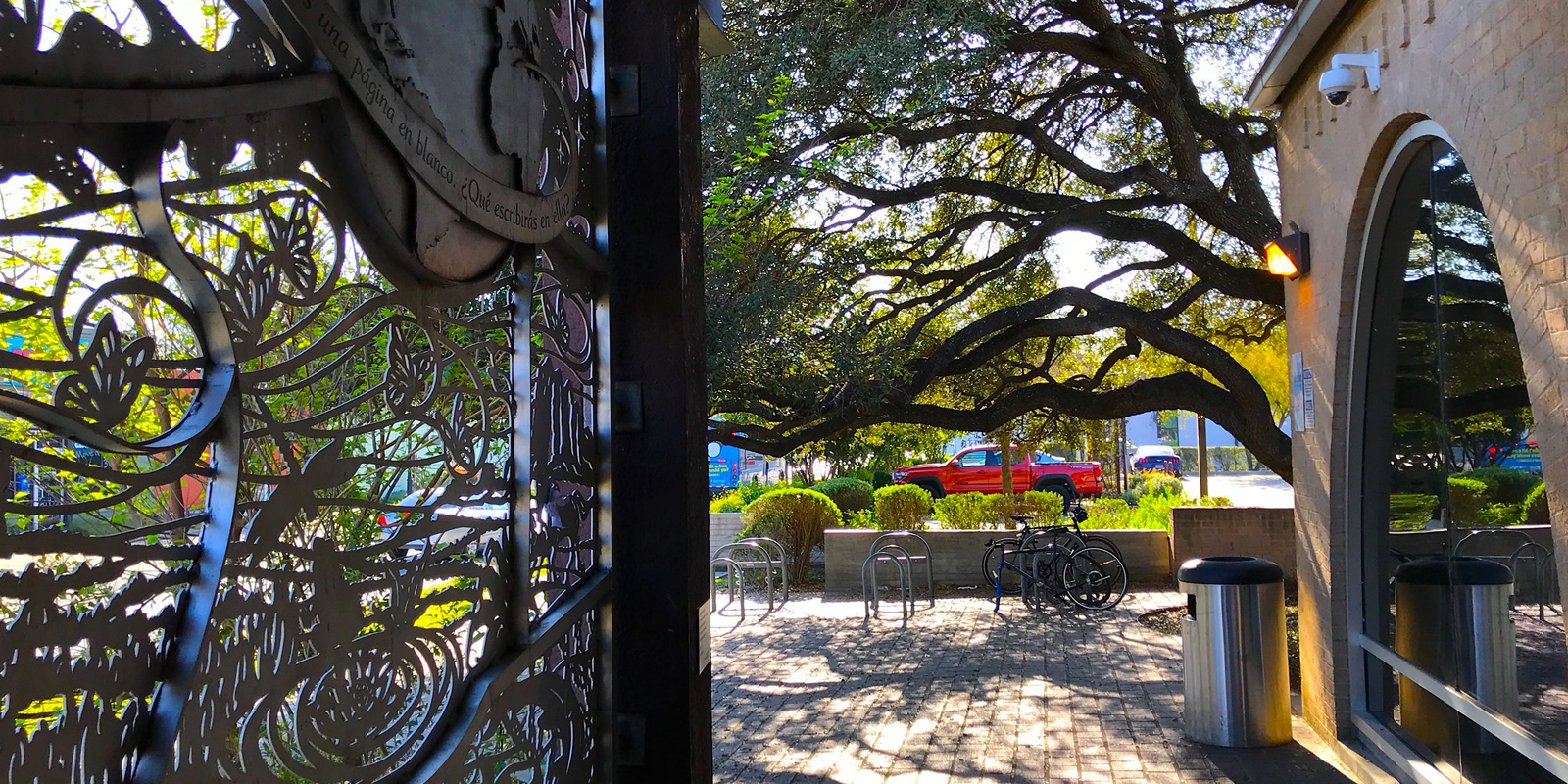From librarian to logistician to homeless advocate, Zack Shlachter tackles the pandemic


Zack Shlachter’s guiding principle as a library associate at the Terrazas branch of the Austin, Texas, Public Library is service to his community. No matter who steps foot in his library, he’s there to serve that patron, whatever that person’s needs.
That many of his patrons are homeless, and that the services they need fall outside conventional library services matters little to Shlachter, a winner of AFSCME’s Never Quit Service Award.
“What I love about the library is that we define our services really broadly,” says Shlachter, a member of AFSCME Local 1624. “Even coming into the library constitutes ‘use’ – to read or cool off or charge phones, which is [patrons’] lifelines.”
In the almost two years that Shlachter has worked at the branch, he’s helped provide a wide range of services: from helping guests apply for Supplemental Nutrition Assistance Program (SNAP) benefits to filling out tax forms to creating an inviting and welcoming space, as well as providing more traditional library services.
When the pandemic hit and the library closed its doors, Shlachter feared for his patrons’ well-being.
“Remember – this is March 2020,” recalls Shlachter. “Where are folks going to go to use the bathroom? Where would people go for food?”
Shlachter assembled a robust “living” shared document, which allowed both city workers and non-city partners to see what was open and how services to the homeless community could remain uninterrupted.
“At the library we deal in information,” says Shlachter. “What we worked on was crowdsourcing a live document for all social service and homeless service providers … to update each other to share information.”
Shlachter was added to an emergency cross-departmental team led by Michelle Myles, who worked at the time for Austin Public Health in the homeless strategy division. Myles led a pandemic initiative called Eating Apart Together (EAT).
According to Myles, who nominated Shlachter for the Never Quit Service Award, Shlachter became a crucial linchpin of EAT.
Myles calls Shlachter a “compassionate logistical wizard,” not only for his work on the ever-evolving document, but for his work on the EAT initiative, which involved delivering meals to the homeless community throughout the pandemic.
“He’s extremely dynamic,” said Myles. “He’s a problem solver, good at mediating and finding solutions. He’s very calm, thoughtful and dedicated. He wants to make sure people who need food get it.”
If coordinating the delivering of meals, water and hygiene products to the homeless population – on city streets and in encampments beyond – was challenging, that challenge grew even more difficult when winter storm Uri hit, bringing life-threatening weather and shuttering businesses.
The logistics of getting a meal to one person can be complex. Austin event centers were already being used to assemble meals. But what happens when a restaurant that the city partners with to provide hot meals has no water or electricity? What happens when the roads become impassable? How does food make its way to those who need it?
“The whole supply chain was broken,” says Myles.
True to his nature, that did not stop Shlachter during the storm.
Shlachter said, “We had to do it hour by hour: Who has water? Food? Gas? Can they get to their facility? That went on from 7 a.m. to 10 p.m.”
Shlachter says they sourced 15,000 meals in a week. While he credits many partners for their success, including faith-based groups, unions, activists, community organizers and others, Myles says, “If it wasn’t for Zack and his connections and skills, people would not have gotten fed.”
As tough as the past 16 months have been, things are finally starting to wind down. Shlachter may soon return to his previous job at the Terrazas branch, and the passing of a camping ban in Austin will change how some homeless people receive meals and care.
Nevertheless, reflecting on the past 11/2 years, and the more than 1 million meals he’s helped serve, Shlachter says working with the EAT initiative, “was an immense privilege and has done a lot for me.”
Know a co-worker who goes above and beyond the call of duty to make their community better? Nominate them for AFSCME’s Never Quit Service Award.